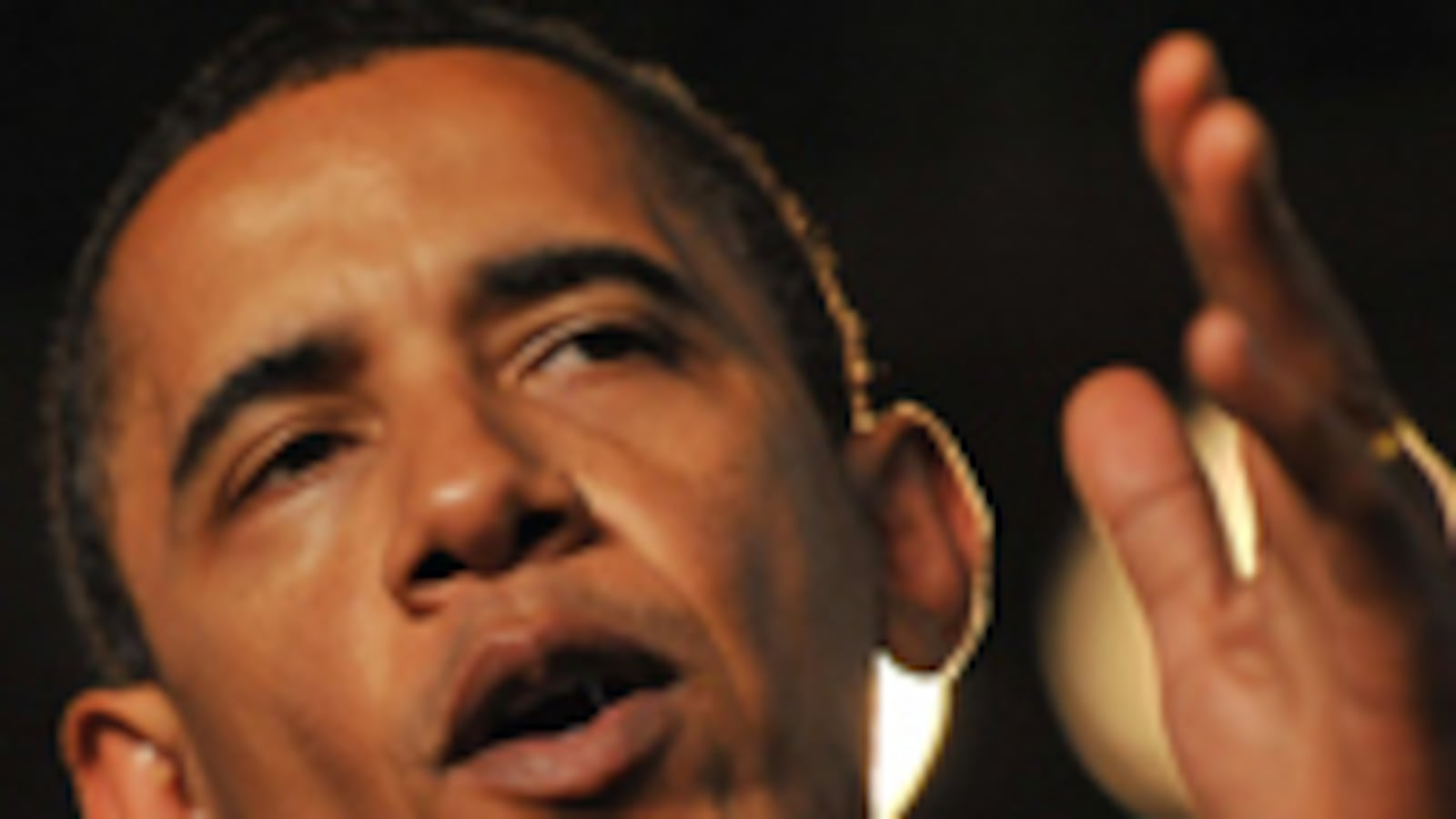
Plus, read more insight on Iran's election from other Daily Beast writers.
Is President Obama going wobbly on Iran?
His former presidential rival John McCain declared on the Today show that “he should speak out that this is a corrupt, fraud, sham of an election.” Other conservatives and neo-cons have piled on with the condemnations of both the regime in Tehran and the one housed at 1600 Pennsylvania Avenue. Eric Cantor, the House Minority Whip, attacked Obama’s position as “a step backward for homegrown democracy in the Middle East.” Nile Gardiner, a Heritage Foundation commentator, who once worked as a researcher for Margaret Thatcher a decade after she left Downing Street, termed the president’s policy “cowardly, lily-livered and wrong.” Them’s fightin’ words—which is precisely what the Obama White House wants to avoid in dealing with the Iranian regime and a disputed foreign election.
“We respect Senator McCain. But we saw the same philosophy on North Korea, where he badgered the Bush administration to be tougher. Now we have North Korea with enough material for several nuclear weapons.”
“We respect Senator McCain,” one senior administration official tells me. “But we saw the same philosophy on North Korea, where he badgered the Bush administration to be tougher. Now we have North Korea with enough material for several nuclear weapons. And we saw that the ‘tough’ approach on Iran employed by the Bush administration led to the Iranians now spinning a large number of centrifuges.”
Inside the Obama administration, the notion of tough talk is seen as highly counterproductive. The easiest way to marginalize and even demonize the reform movement is for the United States to align itself with the opposition. “Given the long history of the U.S. and Iran over the last 30 years, the issue is that you don’t want to insert yourself too much,” the senior official says. “Because otherwise it gives the Iranians a pretty easy excuse to paint one side as being with the U.S.”
That has left the White House with a complex problem of communications. How to express outrage at the violence without taking obvious sides and playing into the hands of a repressive regime?
“Using Obama’s moral authority—which he established very well with the Cairo speech—in a targeted, surgical way makes a lot of sense,” my well-placed source continues. “We have to be very smart as to how the president addresses this issue in the press and public statements.” Thus, in public, Obama has been careful—if not surgical—in talking about the elections, frustrating liberal friends and conservative critics alike.
“I do believe that something has happened in Iran where there is a questioning of the kinds of antagonistic postures toward the international community that have taken place in the past, and that there are people who want to see greater openness and greater debate and want to see greater democracy,” Obama told reporters in the Rose Garden on Tuesday. “How that plays out over the next several days and several weeks is something ultimately for the Iranian people to decide. But I stand strongly with the universal principle that people’s voices should be heard and not suppressed.”
Few other foreign crises suggest a template for what the White House can achieve or avoid. Tiananmen Square two decades ago seems an obvious comparison, but the history between China and the United States was hardly as fraught as the Iranian relationship. Brent Scowcroft infamously toasted the Chinese leadership six months after Tiananmen. There is zero chance that James Jones will do the same in Tehran six months from now.
The real power in national security lies with someone who reigns regardless of the votes, no matter how they are counted: supreme leader Ayatollah Ali Khamenei.
So why does Obama show no greater enthusiasm for the reformers who are protesting in the streets and enduring the beatings of the regime’s henchmen?
It’s not just because he wants to avoid meddling. Among his senior advisers, there is the strong view that no matter who “wins” the election as Iranian president, the real power in national security lies with someone who reigns regardless of the votes, no matter how they are counted: supreme leader Ayatollah Ali Khamenei.
While Khamenei is in power, the most troubling aspect of Iranian policy—its nuclear program—is likely to remain on its current track. “That variable remains constant,” says the senior Obama official. “And that is a key variable in the equation.”
Richard Wolffe is Daily Beast columnist and an award-winning journalist, political analyst for MSNBC, and senior strategist at Public Strategies. He covered the entire length of Barack Obama's presidential campaign for Newsweek magazine. His book, Renegade: The Making of a President , will be published by Crown in June.






